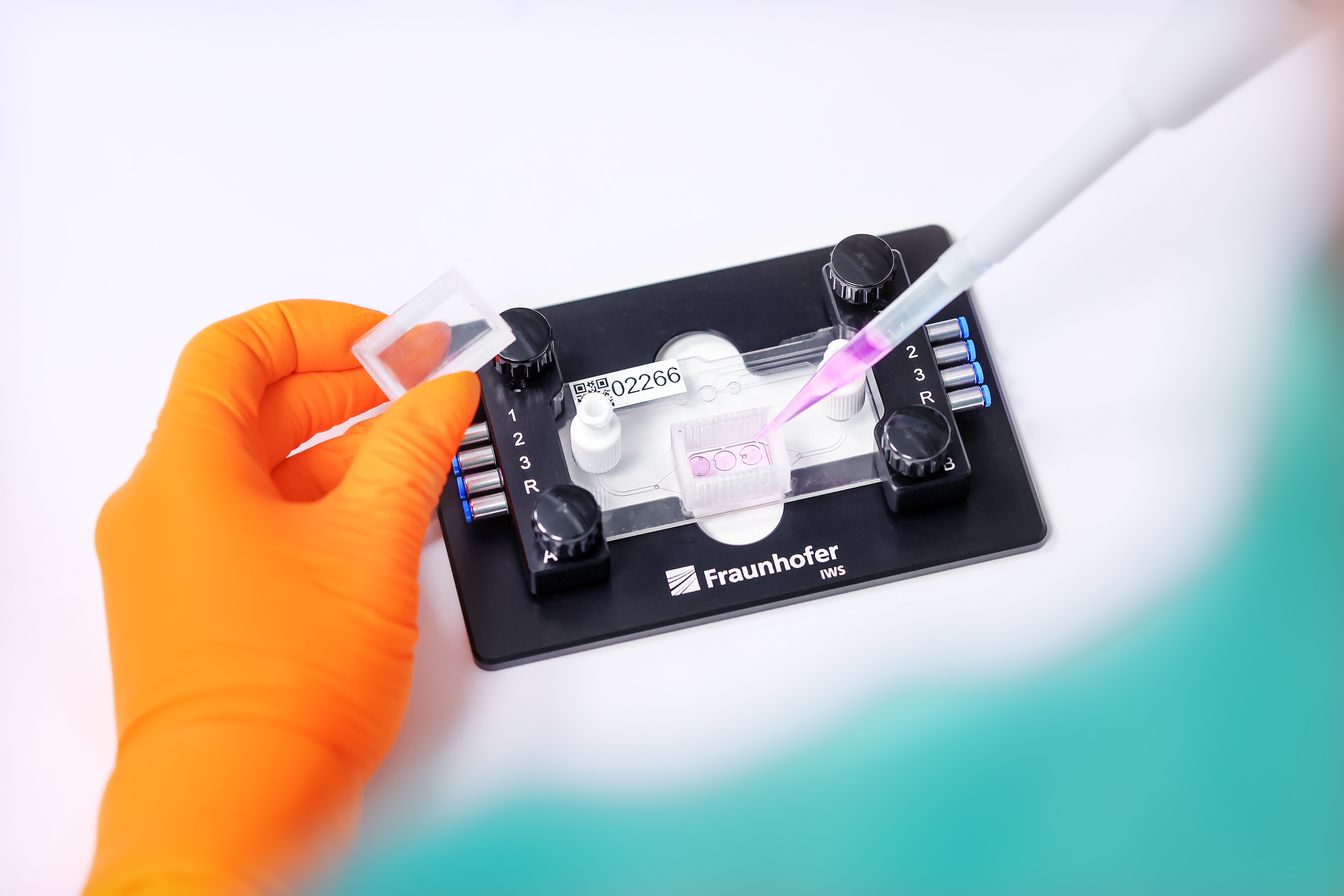The researchers led by Dr. Wiebke Sihver from the HZDR's Radionuclide Diagnostics Department and Dipl. Ing. Florian Schmieder from the Fraunhofer IWS have developed a spherical tumor tissue model on a chip that was treated with radioligands. These ligands are equipped with a radioactive nuclide to bind to a target molecule, in the case of cancer to specific target structures of the tumor thus combating it. Radiopharmaceuticals are used when chemotherapy, surgery or radiation have been ineffective against the tumor.
Usually, mice and rats are used in preclinical research and development here. The team aims to replace at least some of these tests with your new method.
Tissue tumor model on-chip treated with radiopharmaceuticals.
Photo: Amac Garbe/Fraunhofer IWS
The binding of the radionuclide to the tumor spheroids has already been demonstrated and was reported in the first publication.
Original publication:
Wiebke Sihver, Anne-Kathrin Nitt-Weber, Stephan Behrens, Martin Ullrich, Hans-Jurgen, Pietzsch, Negin Namazian Jam, Florian Schmieder*, Frank Sonntag: Introducing micro physiological systems to evaluate new radiopharmaceuticals: A binding study with radiolabeled cetuximab, in Current Directions in Biomedical Engineering 2022;8(2): 532-535. DOI: https://doi.org/10.1515/cdbme-2022-1136
In the next step, a kidney model, as well as a liver organoid, are to be developed, since the kidneys in particular have a dose-limiting effect.
The project is funded by the German Federal Ministry of Education and Research under the program "Alternative Methods to Animal Testing".
Source and further information:
https://www.iws.fraunhofer.de/





 Dr. rer. nat.
Dr. rer. nat. Menschen für Tierrechte - Tierversuchsgegner Rheinland-Pfalz e.V.
Menschen für Tierrechte - Tierversuchsgegner Rheinland-Pfalz e.V.